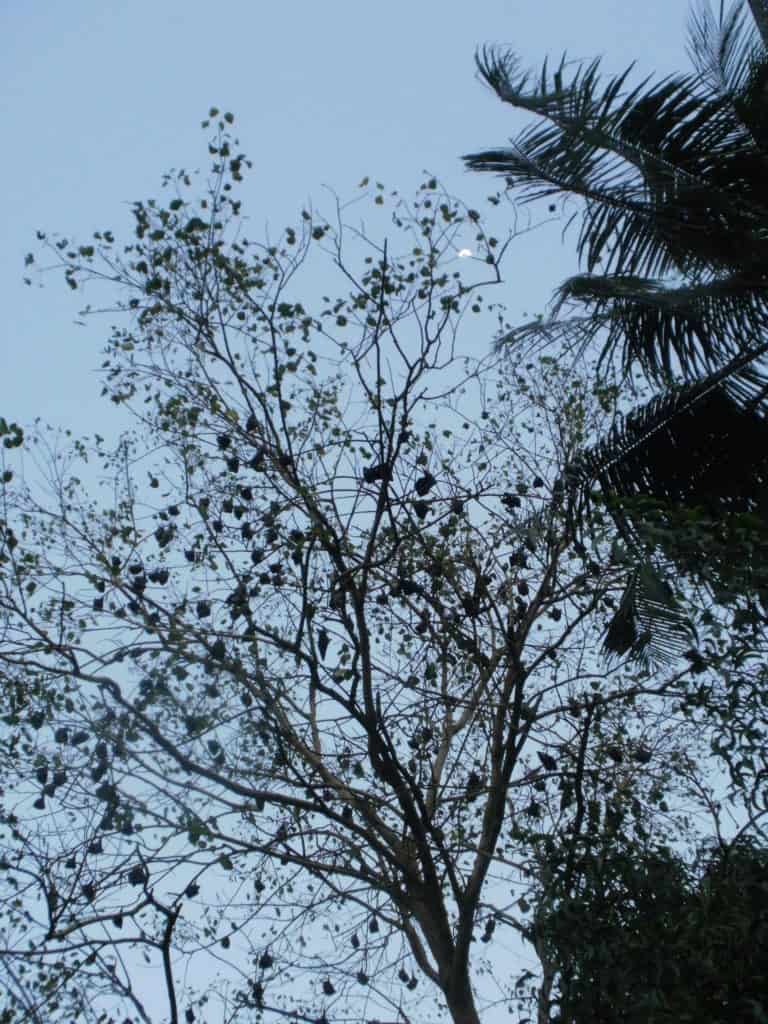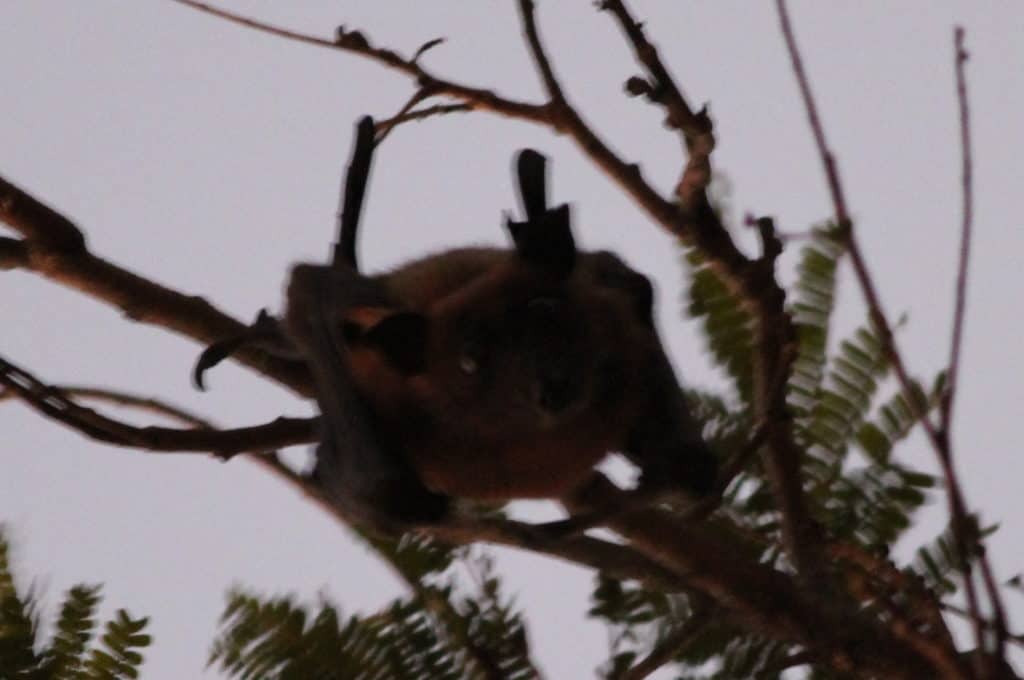During the day, they look like black plastic garbage bags blown onto trees by a strong gust of wind.
As darkness falls, their arms unfold and they take off, flying between the multi-storied buildings in our Lokhandwala Township in Kandivali East.
As you might have gathered, I’ve spent quite a few hours over the last few years watching bats, amazed at how similar they are to vampires in movies.
Or maybe it’s the other way round, vampires in movies are inspired by the wide black wings of bats.

Since the outbreak of the pandemic though, bats have become as scary as the vampires, with fears that the black birds were responsible for spreading the virus that caused the outbreak.
People in my township, who earlier ignored them, became acutely aware of their existence. Many are now bothered by their continued presence as they harbour understandable fear of nurturing the virus in our own backyard.
People are, in fact, worried about having other living creatures moving in their vicinity, cats and dogs included. “During the lockdown, there was a dramatic increase in cases of cruelty against animals,” observed Nagesh Manay, trustee of non-profit organisation People For Animals and Wildlife Rescue & Conservation Centre, Bangalore.
In a Deccan Herald article, he wrote that dogs and cats were abandoned for being possible carriers of the deadly virus. “People called helplines frantically, urging municipal authorities to cut down trees in their neighbourhood so that the bats would disappear. Some even demanded fumigation — pumping noxious fumes into the air to drive away, maim or kill anything that moved. The very air that they and their children breathed,” he wrote.

Why we should not be scared of the bats
About 128 species of bats have been spotted in India, but the ones that are commonly found in urban settings are flying fox bats. They usually live in colonies, in trees or dark corners of buildings. Bats feed on flowers, fruit, insects and small vertebrates. At dusk and in the night, they fly around in search of food and in doing so, may cross paths with humans.
Otherwise, like other wild animals, bats are not really interested in us and prefer to stay away. If you’re scared of blood-sucking vampire bats, rest assured that unlike fictitious human vampires, the real bats don’t care for human blood. Leave them alone and they’re unlikely to bother us.
Nagesh explains that just as humans carry disease-causing contagions, so do animals, and bats are no different. “Studies show that viruses potentially jump hosts when the animal is stressed, handled, or consumed as food. This is as true of any animal as it is of a cold-stricken 10-year-old boy who sneezes into his sister’s face. The more we destroy their habitats, harm them, or try to keep them as pets, the higher the chances of a disease crossing over. Wild animals are meant to be just that – wild, going about their lives with no human interference,” he wrote.
A recent article published in Nature Microbiology states that horseshoe bats are the most plausible origin of the SARS-CoV-2 pathogen, and that the lineage giving rise to SARS-CoV-2 has been circulating unnoticed in these bats for decades. This means that the coronavirus we are seeing in humans is a descendant of the virus in bats. A chain of events happened due to which the virus entered humans, resulting in what we call COVID-19.
It’s worth noting that the current pandemic is due to human-to-human transmission of the virus, and bats have nothing to do with its spread.
We need bats, they do not need us
Some of us may be unaware that while the bats do not need us in the slightest degree, we humans are dependent on the urban bat population for several things.
Bats love mosquitoes and other insects that would otherwise bother us. By eating them up, they help in preventing the spread of diseases such as malaria. Even in rural areas, farmers have fewer insect pests if there are bats around. They need to use fewer pesticides. While the farmers save money, we get better quality food.
Bats are important for pollination of over 300 tropical plants including bananas, mangoes and figs. They directly influence crop yield. Bats also aid in dispersal of seeds, especially the fruit they eat, through their droppings. Bat poop is also said to be good fertiliser.
Without bats, many ecosystems would gradually fade way.
There is enough space for bats and other urban wildlife to coexist with us humans. A balanced ecosystem is in our benefit, and this is perhaps the one instance where it’s fine for us to be selfish.